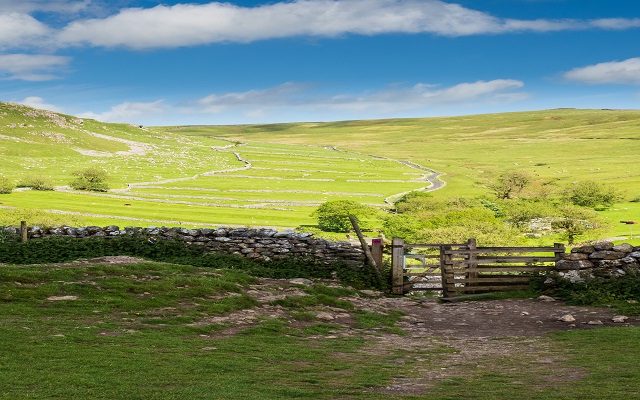Land Business Update | Week Commencing 8th January 2024
Welcome to our fortnightly update on key land management, farming, planning, forestry, environmental and energy issues.
Farming
Refresh of the Agricultural Transition Plan in England
The government has announced a series of changes to the post-Brexit plan for farming and forestry, which is says is the biggest upgrade to the plan since leaving the EU. The main changes include:
- Increase in payment rates for some options in the Countryside Stewardship and Sustainable Farming Incentive scheme (see below for more details).
- From summer 2024, applications for a Countryside Stewardship agreement can be made at any time during the year and agreement holders will be able to amend their agreements once a year.
- Confirmation of schemes that will be opened throughout the year, including:
- New rounds of the Landscape Recovery scheme and the Farming Equipment and Technology Fund.
- A new fund called the Farming Innovation Programme ‘Accelerating Development of Practices and Technologies (ADOPT)’. It will aim to support farmers on their test and trial journey with new technologies and techniques on farm to increase efficiency and potentially reduce labour costs.
- Round 3 of the Large Research & Development Partnerships.
- Round 4 of the Small Research & Development Partnerships.
- Two rounds of the Farming Futures competitions (on nutrient management and on climate smart farming).
- The current rule that farmers must have been eligible for Basic Payments in order to apply for SFI will be removed.
- New support for endemic (regularly occurring) disease management in livestock.
- The establishment of a new industry-led skills body, The Institute for Agriculture and Horticulture (previously announced).
- A call for evidence on the role of a Tenant Farming Commissioner in England (previously announced).
- Legislation to implement the Genetic Technology (Precision Breeding) Act (previously announced).
If you would like to know more about the agricultural transition plan, please contact our Head of Farming, Jonathan Armitage.
Countryside Stewardship and Sustainable Farming Incentive payments and options / actions revised (England)
Defra secretary Steve Barclay announced major changes to the Environmental Land Management scheme at the Oxford Farming Conference as part of the update of the Agricultural Transition Plan. Key messages were:
- Increases in some payments under CS and SFI. These will apply from 1st January 2024 for CS agreements and from the start of the current agreement year for SFI. The increases equate to a 10% uplift in payments per agreement.
- ‘Premium payments’ for actions with the biggest environmental impact or combinations of actions that deliver benefits at scale, such as £765/ha for nesting plots for lapwing, and £1,242/ha for connecting river and floodplain habitats.
- Lowland and upland payment rates have been equalised, which means upland rates have been increased.
- Merge of management and creation payments for grassland habitat offers. This is to encourage land managers to undertake maintenance actions. The payment for maintaining species rich grassland habitats will increase from £182 to £646 per hectare from 1st January.
- The £20 / ha management payment for the first 50 ha entered into a SFI agreement will continue to be available in 2024.
- An additional 50 ‘actions’, which is a new term for ‘options’, will be added to CS and SFI in 2024. This will include actions for agroforestry, precision farming, protecting lowland peat, and recovery of priority habitats and threatened native species.
- Introduction of a single application process for both SFI and CS, possibly from this summer.
If you would like to discuss agri-environment schemes or any of the other schemes being offered by Defra, please contact Jonathan Armitage or your local farming team. You can read more about the changes in our blog post here.
Keeping farmers farming – final consultation open on the Welsh Sustainable Farming Scheme (SFS)
The consultation sets out final proposals for the SFS actions and rules that will be introduced in 2025, how farmers enter the scheme, how payments for scheme actions will be calculated, how Basic Payments will be phased out during the transition period (2025-29) and what evidence has been used to shape the design of the scheme. The intention is for the scheme to be accessible to all farmers in Wales and key proposals include:
- 17 Universal Actions which land managers must carry out to receive the standard payment (but the consultation does not state what the payment rate will be). They include carrying out an annual self-assessment, maintaining existing woodlands and actively managing peatlands to protect soil carbon stocks.
- Optional Actions which land managers can chose to do for an additional payment.
- Collaborative Actions which multiple land managers can do at a landscape, catchment or national scale.
- A Stability Payment during the period when Basic Payments are phased out (2025-2029).
The consultation closes on 7th March.
Improving Farm Productivity grant opening in January (England)
The second round of this grant is expected to open this month and pays:
- 40% grant for robotic / automated equipment and systems to aid crop and livestock production, with £25k minimum grant.
- 25% grant for solar equipment to increase energy generation on farms, with £15k minimum grant and £100k maximum.
Environment
Scotland’s climate is changing faster than expected
New research has found that average February temperatures in Scotland have already reached the level expected in 2050. They have risen in parts of Scotland by 2.5oC compared with the average in 1960-1989. Winter rainfall levels have also already exceeded projections for 2050. Despite this, the researchers are also warning of increases in water scarcity in the near future, which will affect agricultural productivity. The lead researcher for the Scottish climate change and extremes trends research said that, ‘The acceleration of climate change and biodiversity loss on a global scale could push us beyond key tipping points, which if crossed will be irreversible’. The Scottish Government will publish its National Adaptation Plan this month. Separately, the Met Office has confirmed that 2023 was the second warmest year on record.
Forestry
Using more timber in construction – industry roadmap
The roadmap includes a range of actions that are hoped will increase use of timber, and especially UK-grown timber, in order to reduce emissions from construction and store carbon in buildings. They include:
- Promoting timber as a construction material.
- Increasing the supply of sustainable timber products.
- Addressing fire safety concerns to safely expand the use of engineered mass timber.
- Building collaboration with insurers, lenders, and warranty providers.
- Improving data on timber and whole life carbon, boosting skills and capacity across the supply chain.
Property, planning and the rural economy
Flooding support in England
Financial support is available for farmers, businesses and households which have experienced flooding between 2nd and 8th January. Land managers can get up to £25,000 through the Farming Recovery Fund to cover repairs and reinstatement costs. The support is available through eligible county councils, which so far include Gloucestershire, Leicestershire, Lincolnshire, Nottinghamshire, Warwickshire, West Northamptonshire, Wiltshire and Worcestershire.
New National Planning Policy Framework for England
Following the royal assent of the Levelling Up and Regeneration Act 2023, the government has published the latest edition of the National Planning Policy Framework (NPPF) and also a new infrastructure plan, titled Getting Britain Building Again – Speeding Up Infrastructure Delivery. The main points are:
- Housing targets – the method for assessing local housing need is now an advisory starting point, albeit the government reconfirmed the industry’s longstanding approach that this is the usual method that should be deployed.
- Housing location – the uplift in housing delivery to meet needs continues to be directed to urban areas, partly through increasing urban density so long as it is not inconsistent with the character of the local area. With no requirement to review Green Belt boundaries in local plan reviews in order to attempt to accommodate housing need, there is a real prospect that local housing need will not be met and the government will fall well short of the 300,000 homes/annum target.
- Types of housing – greater support is given in local plan making to self-build, custom-build, community-led housing and for older people’s housing.
- New homes in the countryside – these provisions, which assist farming succession, are unchanged.
- Small developers – greater support for small sites in order to deliver self-build, custom build and community housing.
- Local plans – local authorities with up-to-date local plans are rewarded with the removal of the need to monitor their five-year housing land supply annually and provide buffers to account for not meeting housing targets.
- Agricultural Land – more emphasis is placed on the protection of agricultural land for food production.
- Infrastructure – changes to processes for granting consent for new infrastructure, particularly for low carbon distribution, aim to cut the time to approve projects. Planning support for energy efficiency and low carbon improvements to domestic and non-domestic buildings. A new National Policy Statement for water was published in September and updated National Policy Statements on energy infrastructure come in to force early this year.
Please contact Caroline McDade, our national head of planning, if you would like to discuss the new NPPF and its effect.
Proposals to make it easier to improve energy efficiency of historic buildings
The Government has published its review into the challenges faced when retrofitting in conservation areas and listed buildings. Its main commitments include:
- Consulting on reforms to Energy Performance Certificates to ensure they are reliable.
- Consulting on a new national policy for historic buildings, to try to ensure greater certainty in decisions.
- Consulting on the greater use of Listed Building Consent Orders, to remove the need for individual applications for individual projects.
- Producing clearer guidance for homeowners on how to improve energy efficiency.
- Supporting the construction industry to better deliver retrofitting services.
They include proposals to automatically grant permission for improvements such as double glazing. Please contact Alex MacFarlane if you would like to discuss this.






